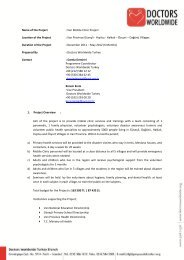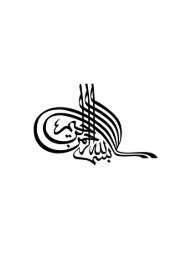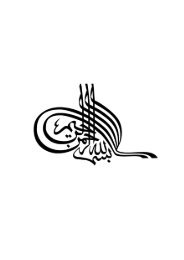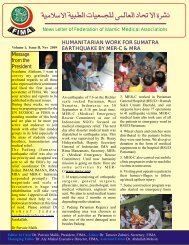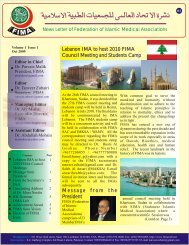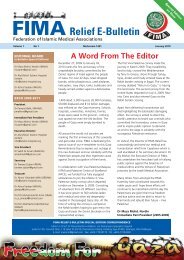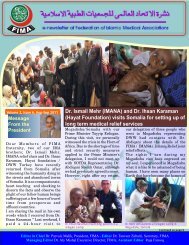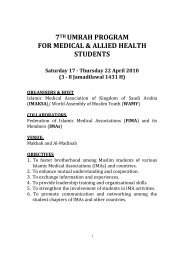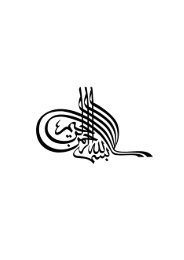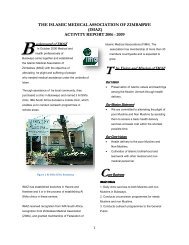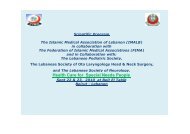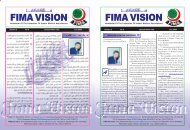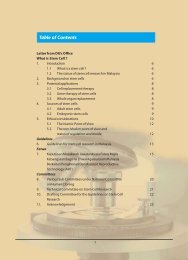FIMA Year Book 2009 - Federation of Islamic Medical Associations
FIMA Year Book 2009 - Federation of Islamic Medical Associations
FIMA Year Book 2009 - Federation of Islamic Medical Associations
Create successful ePaper yourself
Turn your PDF publications into a flip-book with our unique Google optimized e-Paper software.
Muslim Contributionsanother in their quest, they generallycomplemented each other’s role inbringing wealth and stability to theirmotherland; Europe. The center <strong>of</strong>international trade quickly shifted fromthe Muslim dominated Mediterraneanto the European dominated Atlanticand colonial outposts <strong>of</strong> Asia .Thenew found wealth brought economicprosperity and political stability toEurope. With it came further scientificprogress.Ironically some <strong>of</strong> the Muslims policiescontributed to the rise <strong>of</strong> Europe. Forexample in Ottoman caliphate, foreignnon-Muslim trading communities weregiven privileges and immunities knownas Capitulations. The Ottomans thoughtthese policies would help in improvingthe economy <strong>of</strong> the caliphate but theseconcessions allowed the Europeansto gain control <strong>of</strong> the economic life <strong>of</strong>the <strong>Islamic</strong> regions (35) . Gradually withthe fall <strong>of</strong> <strong>Islamic</strong> states, more foreigncountries demanded these privilegesand these concessions were extendedto non-commercial entities. By the19th century European imperialismincreased under Britain and because<strong>of</strong> several unfavorable commercialtreaties, the revenue <strong>of</strong> Ottomangovernment dropped drastically (36) .The Muslim world was also deprived<strong>of</strong> the scientific revolution engulfingEurope from the 18 th Century onwards.The cultural barrier between ChristianEurope and Muslim world isolatedthe latter from the revolutions takingplace in the science and technology inEurope. This was one <strong>of</strong> the importantfactors contributing to the decline <strong>of</strong>the <strong>Islamic</strong> dominant position. WhileEurope continued to develop andflourish with science and technology,the Muslims began to fragment underthe weight <strong>of</strong> colonisation. Rapiddeterioration within the Muslim worldensued. With practically no progressin any field <strong>of</strong> science, the sense <strong>of</strong>isolation from scientific progressdeepened within the Muslim world.The gap between the Muslim worldand Europe in terms <strong>of</strong> scientificachievement continued to increase (11) .Disunity among MuslimsMost <strong>of</strong> the factors outlined abovecould have been prevented had theMuslims been more united and showeda sense <strong>of</strong> togetherness during times<strong>of</strong> trials and tribulations. Despite theefforts <strong>of</strong> their forefathers in spreadingthe Tawhidic message from Moroccoin the West to the Philippines andIndonesia in the East, the Muslimsfailed to maintain and consolidateunity among the Ummah. The Muslimworld became fragmented into smallsultanates each wary <strong>of</strong> each other,oblivious <strong>of</strong> threats from outside.In the West, the Christians saw thiswindow <strong>of</strong> opportunity and createdmore dissension among the Muslims.One by one the desperate sultanateswere defeated until Granada wasnon defensible by 1492 C.E. Uponretreating from Granada the mother<strong>of</strong> the last sultan Boabdil saw her sonweeping while leaving the Alhambrathe Ghurnata (Granada) Palace behind.<strong>FIMA</strong> <strong>Year</strong><strong>Book</strong> <strong>2009</strong>113




